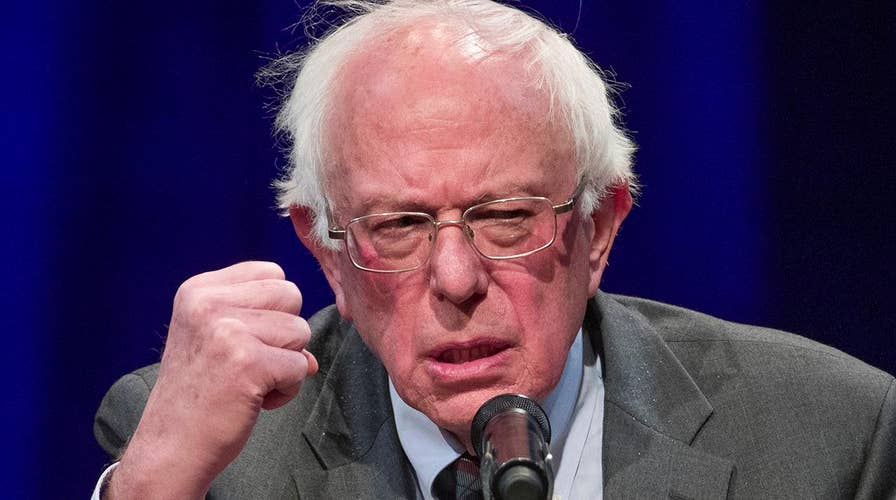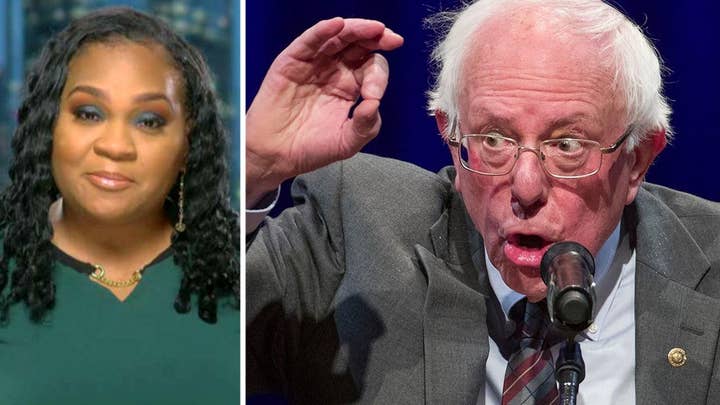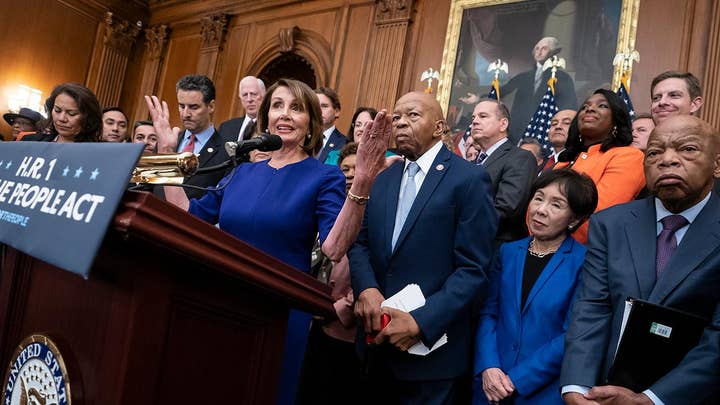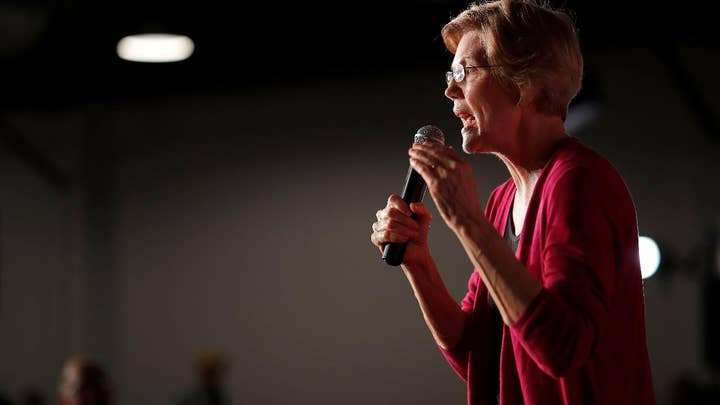MANCHESTER, N.H. -- As Bernie Sanders gears up for a likely second run at the Democratic presidential nomination, the Vermont senator finds himself facing a much higher level of scrutiny than he ever endured in 2016.
And while the 77-year-old Democratic socialist popularized Medicare-for-all and other big-government programs since espoused by a host of 2020 hopefuls, he is now one of many like-minded candidates – no longer the lone torch-bearer for the progressive cause. Perhaps the most ideologically aligned of the lot, Massachusetts Sen. Elizabeth Warren, got the jump on the field by launching her presidential exploratory committee last week and then promptly barnstorming Iowa.
But making matters worse, Sanders has been forced to grapple with lingering fallout from a sexual harassment controversy tied to his 2016 campaign. The allegations of harassment and sexism in Sanders’ 2016 campaign – which emerged in reports last week by The New York Times and Politico – are raising new questions even among some of Sanders' strongest supporters.
CLICK HERE TO GET THE FOX NEWS APP
“The problem has to be dealt with and rectified,” Burt Cohen, a former New Hampshire state senator who served as a Sanders delegate to the 2016 Democratic convention, told Fox News.
Another top supporter from New Hampshire – who asked to remain anonymous to speak more freely – said that if the controversy “hasn’t been quelled, it’s a concern for me.”
And the home-state Barre Montpelier Times Argus newspaper just published a blistering editorial that began, “Bernie Sanders should not run for president. In fact, we beg him not to.”
The editorial listed several points, including the sexual harassment allegations, while noting they are not directed at him personally. But more broadly, the piece warned Sanders could divide an already “well-fractured Democratic Party,” complained he is “abrasive” and counseled: “It is one thing to start a revolution, but at a certain point you need to know when to step out of the way and let others carry the water for you.”
The harassment controversy isn’t entirely new. Allegations of sexism briefly surfaced during Sanders’ 2016 White House bid, and some of his young white male supporters who went online to aggressively attack Hillary Clinton and her followers were pejoratively labeled “Bernie Bros,” yet the stories didn’t seriously impact his bid for the Democratic nomination.
But that was well before the #MeToo movement.
Reports of the controversy surfaced after former staffers and supporters shared stories in recent weeks -- through email and online comments -- of sexual harassment and pay disparity for women during the 2016 campaign.
Some Sanders supporters questioned why some former staffers were making the stories known now, more than three years after the fact.
“The timing of the news is highly suspect,” said Cohen.
Sanders, in an interview on CNN on Wednesday, said, “I certainly apologize to any woman who felt she was not treated appropriately, and of course if I run we will do better the next time.”
When asked if he knew about complaints from his female staffers, he said, “I was a little bit busy running around the country trying to make the case.”
That answer was criticized by some political pundits.
But a Sanders supporter and volunteer who went on to run for Congress in 2018 said she understands that a candidate is often out of the loop when it comes to campaign staffing matters.
“As a candidate running for office, you’re really busy with your nose to the grindstone,” former New Hampshire state Rep. Mindi Messmer told Fox News. “I believe him when he says he wasn’t aware of what was going on.”
“While I’m a supporter of the me too movement and definitely concerned about the way women are treated in politics, we also need to make sure that we’re focused on who the best candidate is to go up against Donald Trump,” Messmer said.
While the Democratic Party is singularly focused on ousting President Trump from the White House, it is also a party celebrating a freshman class in Congress that’s increasingly female and diverse. That, too, could be an obstacle for Sanders, an older white male whose 2016 campaign organization was perceived as too white and too male.
Sanders commanded the left flank of the party in 2016 as he crushed Hillary Clinton – the eventual nominee – in the New Hampshire primary, which launched him into a marathon battle with the former secretary of state that lasted past the final primaries.
But that won’t be the case in 2020.
Warren took a major step last week toward running and proceeded to hire some top Sanders 2016 alums in Iowa, which kicks off the caucus and primary calendar.
Liberal lawmakers like Sens. Jeff Merkley of Oregon and Sherrod Brown of Ohio, as well as Rep. Tulsi Gabbard of Hawaii, are seriously mulling bids. And high-profile Sens. Cory Booker of New Jersey and Kamala Harris of California may also grab for the progressive mantle.
Sanders still has strong support and a solid organization across the country. In New Hampshire, his steering committee of top supporters continues to hold frequent meetings. But a large 2020 field would mean new challenges.
“It’s a whole new ball game. Anyone who thinks differently is delusional,” one veteran progressive activist recently told Fox News. “It starts all over again. There’s very little residual loyalty that I’m finding.”
Messmer noted that “none of us have changed our opinions on what Bernie stands for, and I appreciate all the hard work he’s doing in the Senate.”
But she added that Sanders’ 2016 supporters in the first-in-the-nation primary state are “probably open” to considering other progressive contenders as well.
And while Cohen remains a big fan of the senator, he added that when it comes to the 2020 primary, “I think there’s a lot of great candidates.”
















































